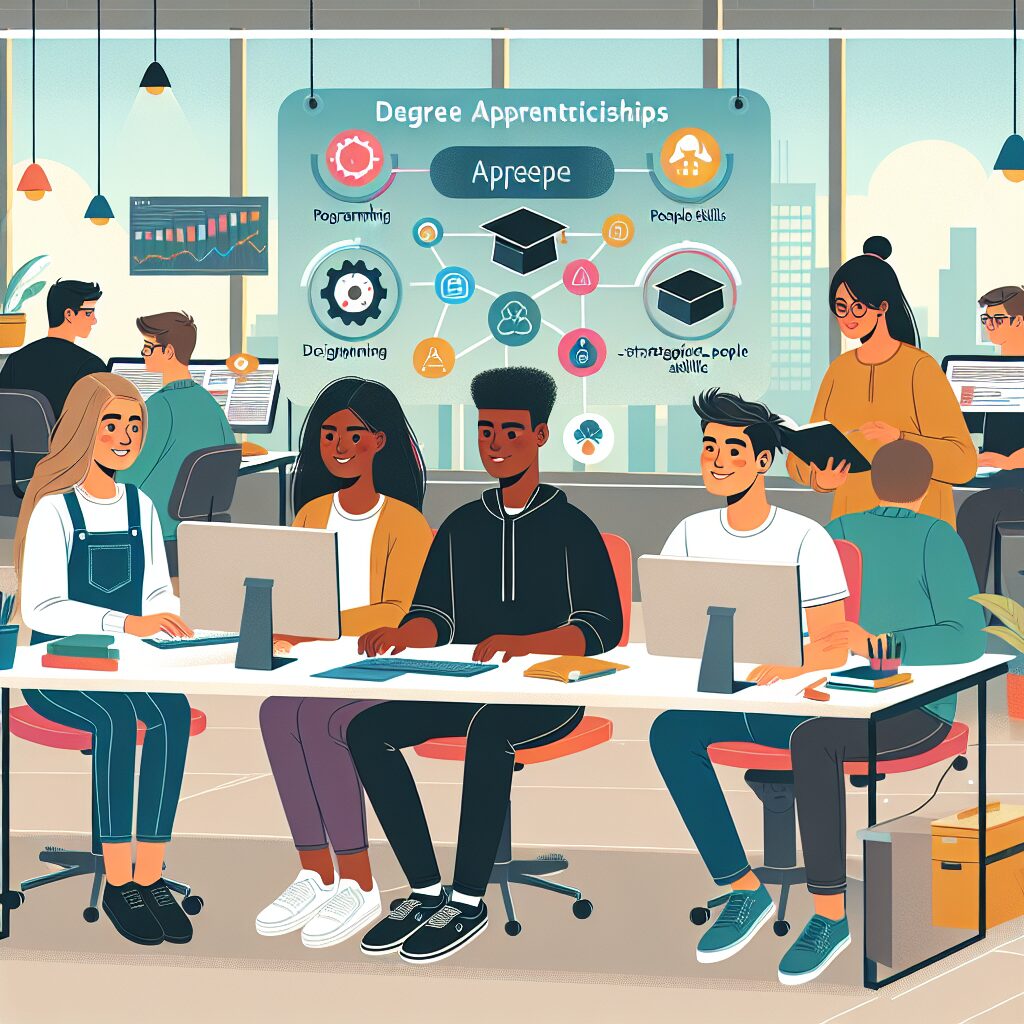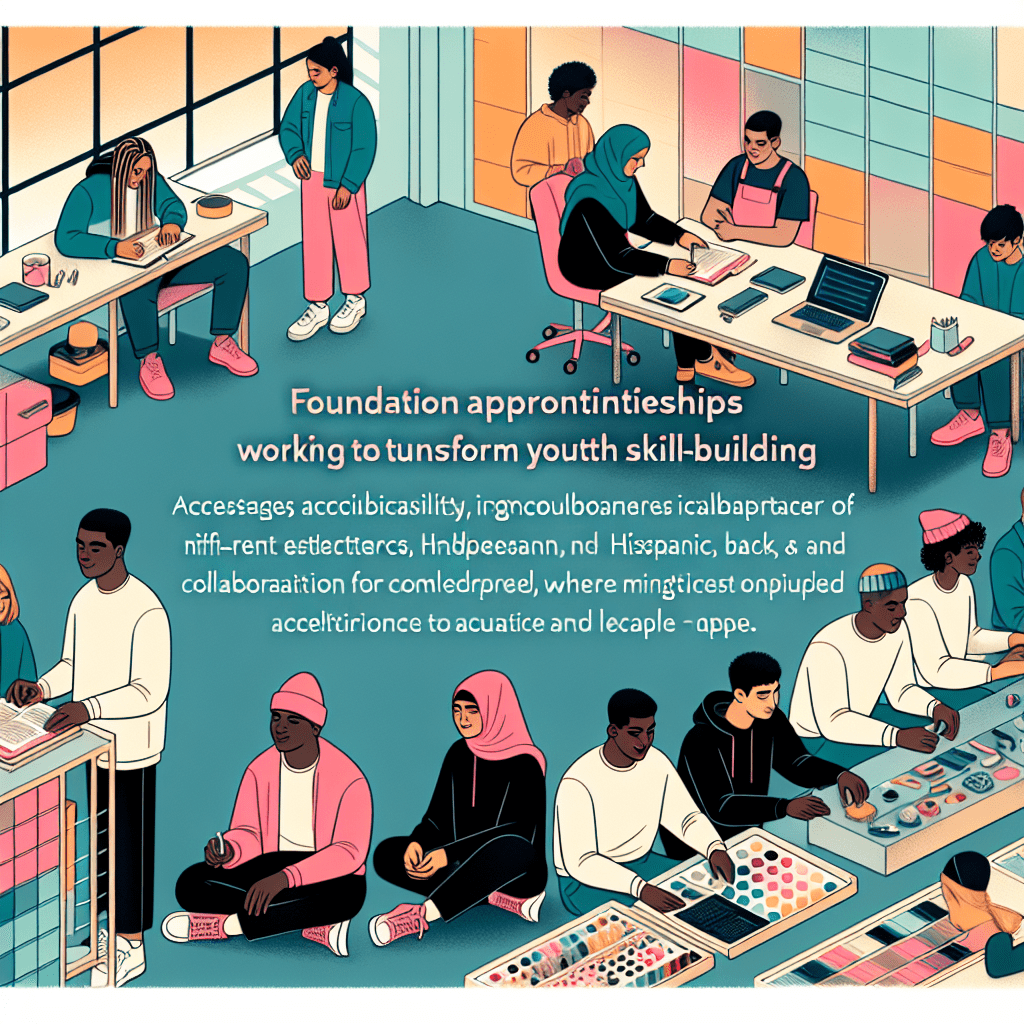
Degree Apprenticeships: Ensuring True Accessibility for All

Degree Apprenticeships: A Game Changer or Just Another Middle-Class Privilege?
Picture this: a world where everyone, regardless of background, has the chance to reach their full potential. Sounds idyllic, doesn’t it? Now, let’s chat about a key player in this dream—degree apprenticeships. They’ve been touted as a way to transform lives, but if we’re not careful, they could end up as just another golden ticket for the privileged few. Isn’t it time we talked about what we can do to make sure these opportunities are truly accessible?
Why Degree Apprenticeships Matter
Degree apprenticeships blend practical work experience with academic study, giving students the best of both worlds. For many young people, they represent a fantastic chance to jump-start their careers while earning a degree. However, as we dissect this idea, it’s crucial to examine who benefits most. Are these pathways genuinely opening doors for all, or are they reinforcing existing societal divides?
At City Skills, we firmly believe that if degree apprenticeships turn into another tool for the middle class, we’re missing the point entirely. We need to ensure these programmes serve diverse backgrounds and promote genuine inclusivity. Otherwise, we risk creating a system where only those with the right connections are able to thrive.
Serving Diverse Backgrounds
To truly transform lives, degree apprenticeships must cater to students from all walks of life. This begins with outreach. We must actively engage with schools in underprivileged areas, ensuring students know that these pathways exist and that they are achievable. If young people aren’t aware of the options available to them, how can we expect them to take advantage?
But it doesn’t stop at awareness. Businesses need to play their part, too. By partnering with organisations that focus on social mobility, companies can help level the playing field. This is where the magic happens: when employers embrace candidates from diverse backgrounds, they not only enrich their own workforce but also contribute to a fairer society.
Creating Genuine Inclusivity
Inclusivity isn’t a buzzword; it’s a necessity. So, what does it take to ensure that degree apprenticeships welcome everyone? For starters, we need to tackle the financing barriers that often trip students up. Financial uncertainty can hold back even the brightest talents. Higher education is already a massive investment, and when you couple that with the costs of living, it can feel downright daunting.
Universities and employers should consider forms of financial support, such as scholarships or stipends, aimed specifically at disadvantaged students. It’s time for the tech giants and corporate leaders to step up and create initiatives that focus on widening participation and giving everyone a fair shot.
Breaking Down Barriers to Opportunity
Next on the agenda is breaking down the institutional barriers that make it harder for underrepresented students to succeed. This includes everything from biased recruitment practices to lack of mentorship and guidance.
Businesses need to implement structured mentorship programmes, pairing apprentices with experienced professionals who can offer advice, networks, and encouragement. Nothing says ‘you belong’ like someone believing in you and guiding you through the journey.
We also need to tweak curricula to reflect real-world challenges. This means not just offering skills relevant to the job market but also preparing students to navigate the complexities of potential biases they might face once they enter the workforce. Empowering all students to be resilient in the face of adversity makes for a stronger, more diverse talent pool.
Final Thoughts
So, here’s where we stand: degree apprenticeships have the power to uplift untold numbers of young people, but only if we decide to make them truly accessible. It’s on all of us—educators, businesses, and society at large—to ensure these pathways are inclusive and representative.
Personally, I’ve seen how mentorship can change lives. I remember a young apprentice I mentored, who, through a simple connection and guidance, transformed not only her career but her family’s future. It brought home the real impact we can make when we invest in people from diverse backgrounds.
As we move forward, let’s keep asking ourselves: how can we actively ensure that degree apprenticeships are accessible and beneficial for every student? Because in the end, a truly inclusive society benefits us all.
If you’re passionate about this topic, I’d love to hear your thoughts. How can we together make degree apprenticeships a tool for genuine social mobility?



